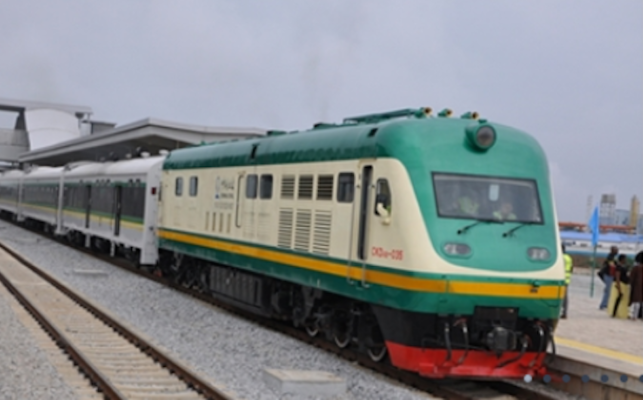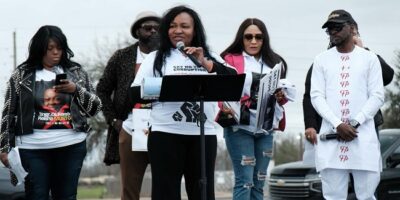FG Inaugurates Warri-Itakpe Railway Line After 30 Years Of Neglect

- Says freight services will create more jobs
The Federal Government has unveiled the Warri-Itakpe standards gauge railway 30 years after it started constructing the rail line designed to transport iron ore from Itakpe to Ajaokuta and Aladja Steel Rolling Mills in Delta.
The apex government disclosed that the rail infrastructure was slated for completion within five years after construction started in 1987, though claimed that it was stalled for over 30 years due to paucity of funds.
This was disclosed during the unveiling of the rail infrastructure on Friday at Ujevwu, a Delta State community close to Warri, the state’s commercial city.
At the inauguration were the Minister of Transportation, Rotimi Amaechi, Chairman, Governing Board of the Nigerian Railway Corporation (NRC), Alhaji Ibrahim Musa and Group Managing Director, Nigerian National Petroleum Corporation (NNPC), Mallam Mele Kyari, among others.
Slated for completion within five years, the federal government started the rail project in 1987 then under the administration of Gen. Ibrahim Babangida who left office on August 27, 1993.
The project had suffered outright neglect under the regimes of late Gen. Sani Abacha and Gen. Abdulsalam Abubakar. But the administration of former President Olusegun Obasanjo brought it back again, though could not implement it substantially.
Also, no major progress was recorded on the implementation of the rail project under the administrations of the late President Umaru Yar’Adua and President Goodluck Jonathan. But it became the priority of President Muhammadu Buhari when he assumed office on May 29, 2015.
At its inauguration, Musa said the construction of Warri-Itakpe Railway was designed for the transportation of Iron Ore from Itakpe to Ajaokuta and Aladja Steel Rolling Mills in Delta.
He explained that the existing railway network nationwide covered 3, 505 kilometres of single-track routes of the 1,067 mm narrow gauge on the Western and Eastern lines.
He said the first 198 kilometres of rail line constructed in Nigeria by the colonial government was from Lagos to Ibadan in 1898-1901 and was 1,067 mm narrow gauge classification.
He said:
The Lagos-Calabar coastal line and the Kano-Maradi standard gauge railway project are in view for financing and commencement.
The upgrade of the Port Harcourt-Maiduguri narrow gauge line has already been awarded to China Civil Engineering Construction Corporation (CCECC).
It is a prelude to the eventual construction of the standard gauge under the Strategic Railway Modernisation plan,
NRC’s board chairman said.
When properly integrated, Musa said, the rail line would provide efficient services for high density flows of passengers, and cargo traffic over relatively long distances, including huge volumes of containerised cargoes or bulk freight.
Also at the inauguration on Friday, Amaechi said the development and modernisation of the railway system had been a major focus of the federal government under the administration of President Muhammadu Buhari.
He said:
It has been one of the strategic aims of the present administration to ensure that all critical infrastructure abandoned by the previous administration, particularly those that would benefit the citizenry, are completed and inaugurated.
It is universally acknowledged that a developing country with a large population such as Nigeria must develop a robust transport system such as a functional rail system. It is instrumental in creating much needed socio-economic transformation and industrial development.
The freight service will enhance more efficient, land-based and affordable mode for mass transit and freight services. We also promised to embark on wealth creation projects through various interventions and project execution that will provide direct and indirect employment opportunities to our citizens.
Only recently, precisely September 2020, President Buhari virtually inaugurated the Warri-Itapke standard gauge passenger train service.
Reports available suggest that patronage on this route has increased by over 200 per cent in the last few months and it is becoming a preferred means of transportation for communities along this route in Delta, Edo and Kogi States.
He, therefore, urged the people in Warri and neighbouring communities to cooperate and support the federal government and the oil companies to enable the freight service project flourish.
Amaechi said that the gesture would attract more Federal Government development to the area, adding that 90 per cent of the employees were from Delta.
Kyari, who was represented by the Managing Director, Nigerian Gas Company (NGC), Mr. Seyi Omojowo, noted that the project would have a ripple effect of massive job creation across the nation as well as domestic gas supply for power generation.
Kyari said the choice of exploring the rail option for the haulage of AKK line pipe was propelled by the desire
to mitigate all identified projects and safety risks to as low as reasonably practicable (ALARP) while delivering the project in the right quality and time.
Moving the pipeline through Nigerian roads was the only option before the return of railway infrastructure. By this laudable achievement of resuming freight service via railway, NNPC’s global goal on health Safety and environment nicknamed Goal Zero incident and accident will be achieved.

Justin Nwosu is the founder and publisher of Flavision. His core interest is in writing unbiased news about Nigeria in particular and Africa in general. He’s a strong adherent of investigative journalism, with a bent on exposing corruption, abuse of power and societal ills.













